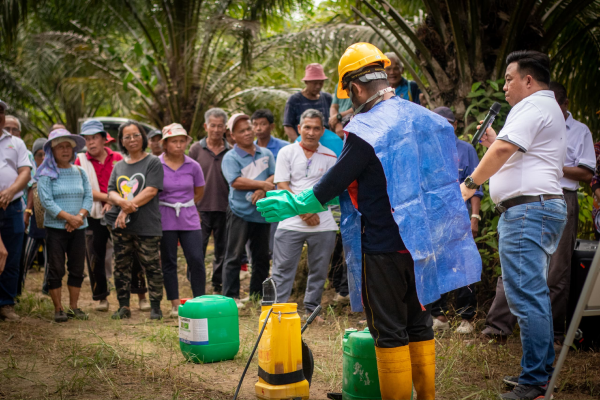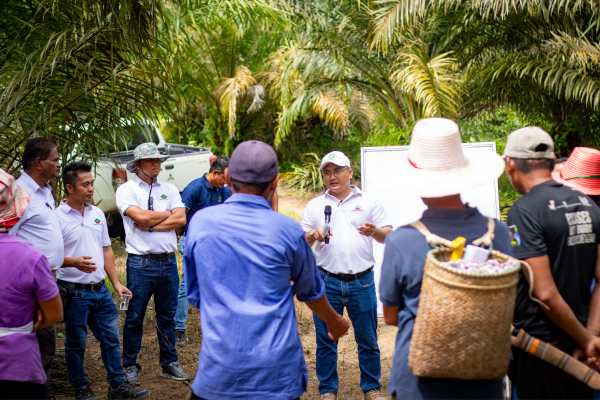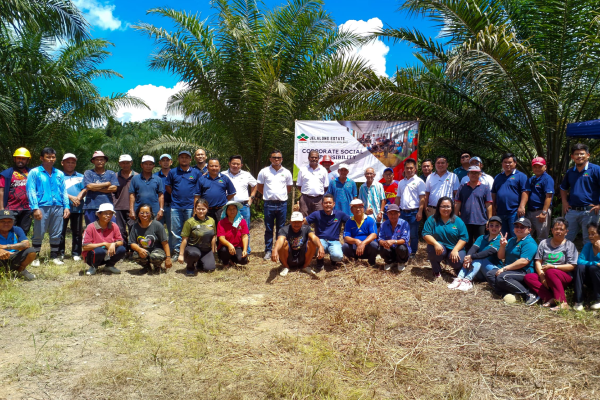Glenealy Plantations enhance its productivity and product quality through best agriculture and milling management practices while promoting continuous improvement.
The company has always engaged in continuous improvement and innovation activities as an ongoing effort to improve all elements of the organization. We always believe that a steady stream of improvements, diligently executed, will have transformational results.
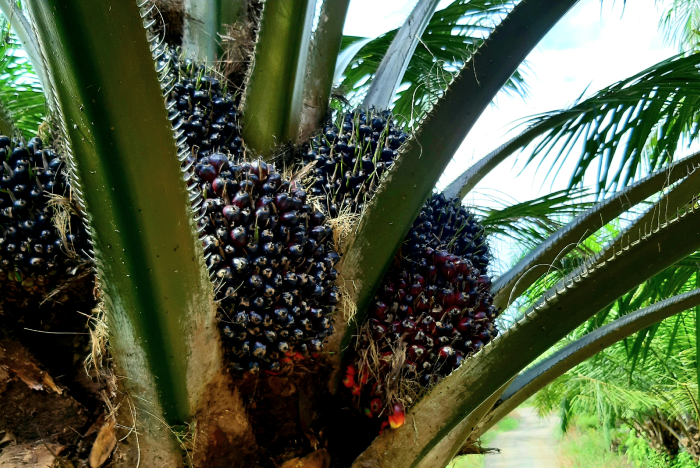
Oil Palm Fruit
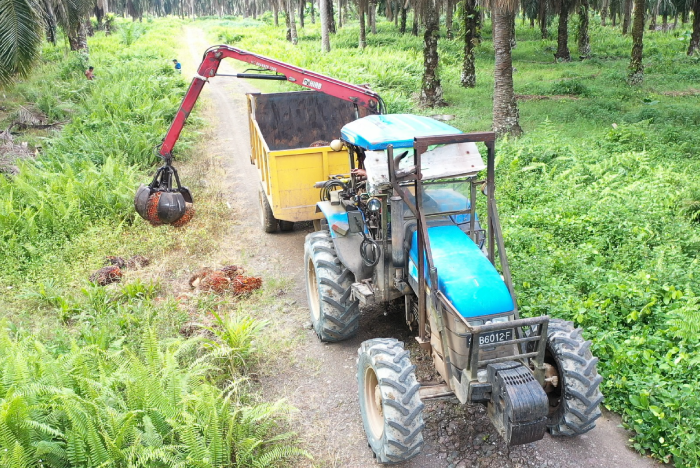
Mechanization as part of the continuous improvement effort
Soil Management
Glenealy Plantations has adopted the plantation industry’s best management practices in soil management to improve soil fertility, reduce soil erosion and address pollution management in every operating unit, as per company Oil Palm Standard Operation Manual dated Aug 2017.
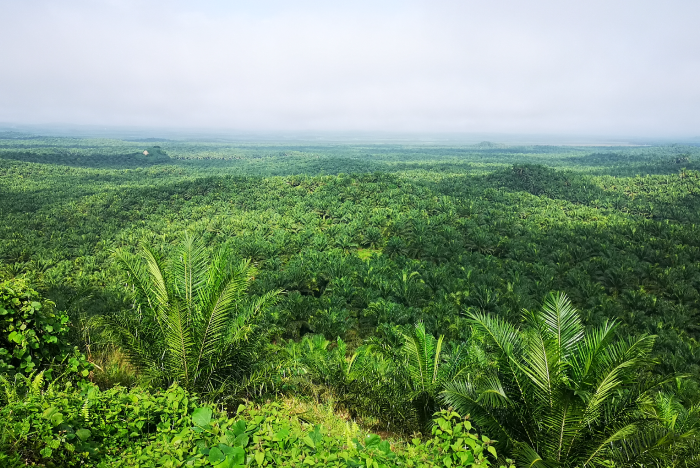
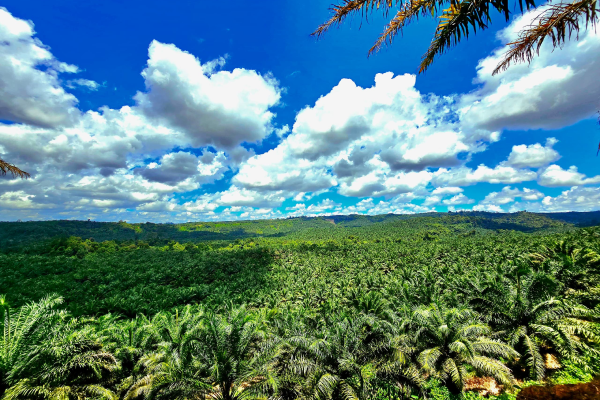
Good Agriculture Practices at Oil Palm Plantation
Minimizing Chemical and Pesticides Application
Integrated Pest Management (IPM)
Glenealy Plantations practise IPM as per company Oil Palm Standard Operation Manual dated Aug 2017, which is the combined use of compatible methods of pests and diseases control that include ecological, physical, biological and chemical controls. These practises have reduced the use of chemical pesticides and negative environmental and food chain impacts.
Barn owls and snakes control the rodent population, while predatory insects and parasitoids eliminate leaf-defoliating insects such as nettle caterpillar and bagworm.
Beneficial plants (such as Turnera Subulata, Cassia Cobanensis, Antigonon Leptopus) are cultivated to provide shelter and supplementary food such as nectar in encouraging the population of predators and parasites.
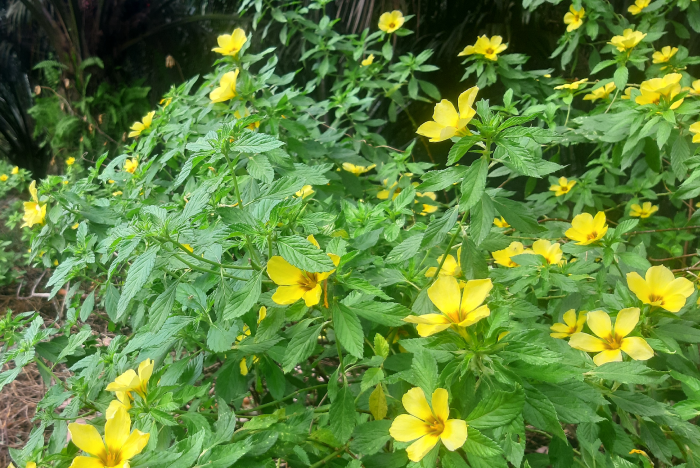
Turnera Subulata
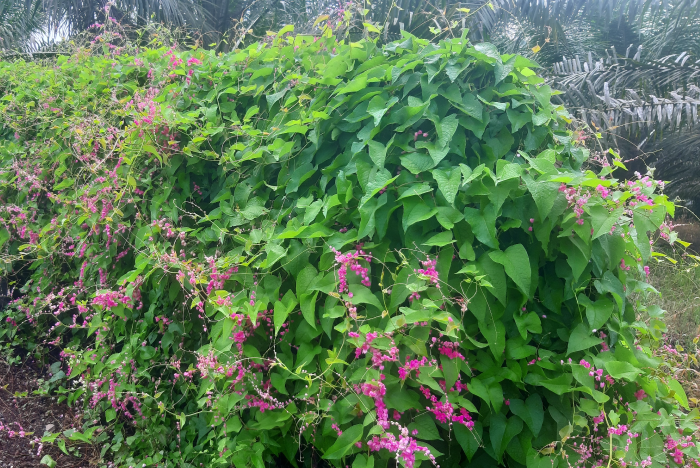
Antigonon leptopus
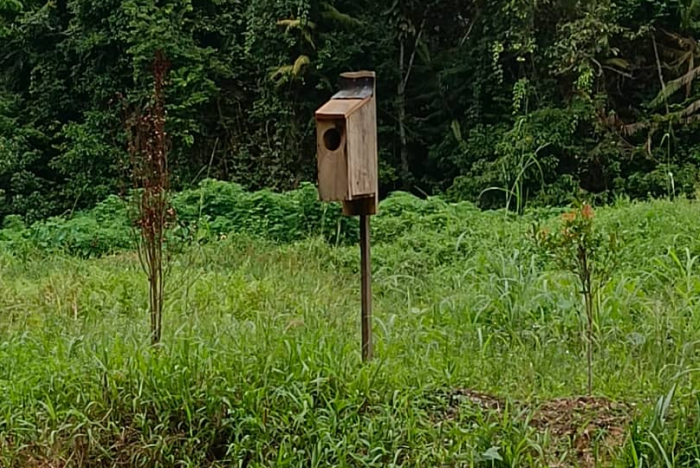
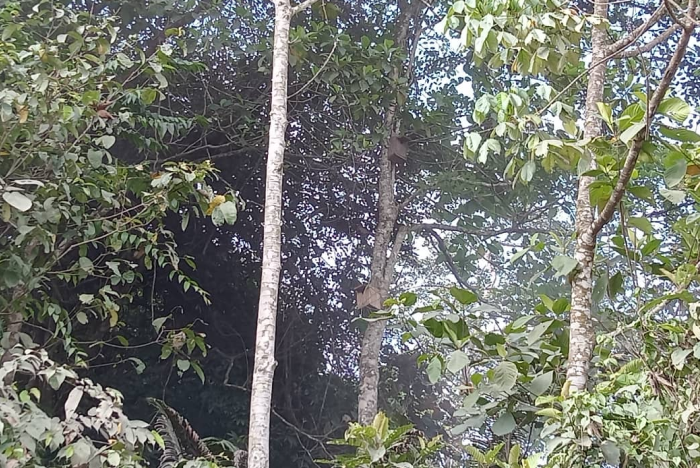
Employee Education on Good Agriculture Practices
Over the year, the company is focus on the employee education on Good Agriculture Practices (GAP) program which aims to equip the employees with the skills and knowledge needed to implement sustainable and efficient farming technique. This education covers topics such as soil health management, pest and disease control, harvesting & manuring standard, replanting standard and etc., By educating employees on these best practices, the initiative seeks to enhance estate productivity, ensure environmental sustainability, and improve the overall quality of agricultural produce.
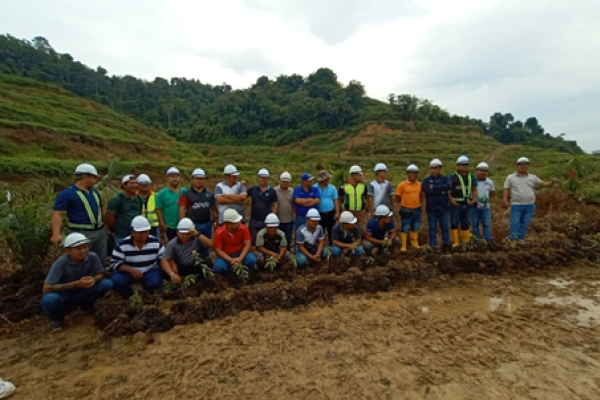
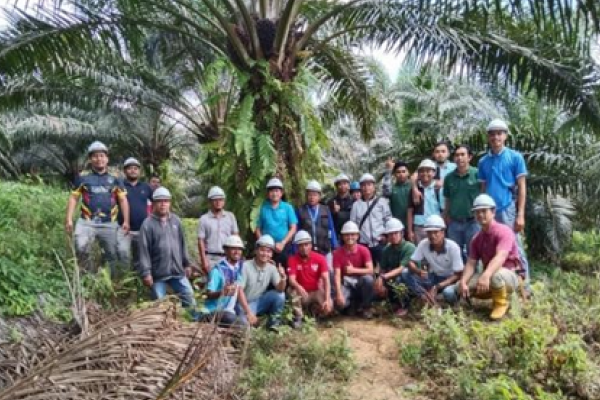
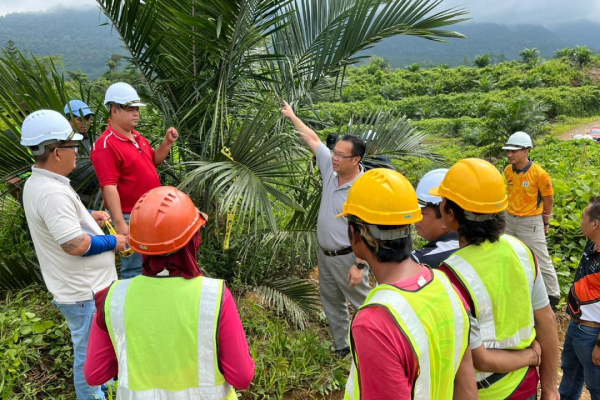
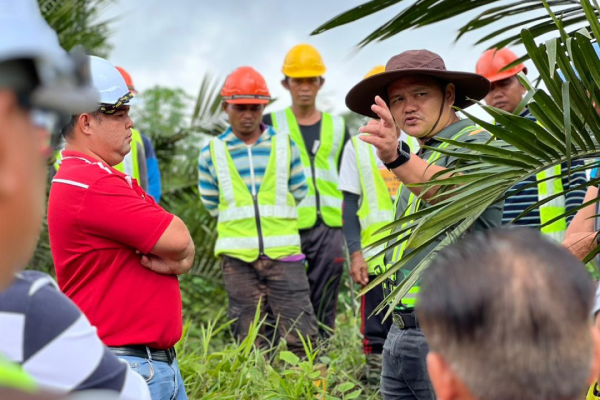
All Glenealy Plantations’s plantations and mills certified both MSPO MS2530: Part 3 (General principles for oil palm plantations and organized smallholders) and MSPO MS2530: Part 4 (General principles for palm oil mill) for all estate plantations and mills operate in Malaysia starting Jan 2019.
Malaysia Sustainable Palm Oil (MSPO) is a Malaysian standards (MS2530) that contains Principles and Criteria which form the general requirements of the oil palm sustainable management system framework.

MSPO Certificates
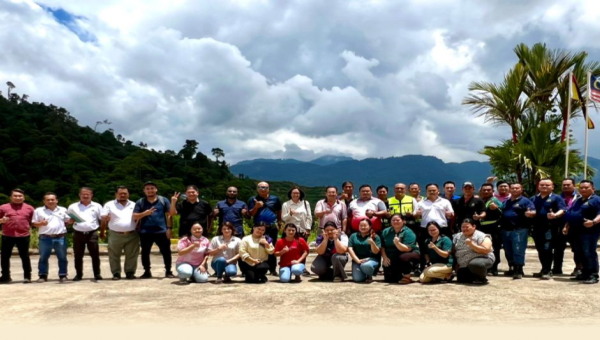
Group photo with MSPO auditors during the MSPO Re-certification audit at Belaga on 5th-8th Mar 2024
All the 4 palm oil mills in Malaysia under Glenealy Plantations has obtained the Malaysian Sustainable Palm Oil Supply Chain Certification Standard (MSPO SCCS) starting Jan 2020.
MSPO SCCS covers management requirements and traceability of the production throughout the supply chain from the raw materials to processing and manufacturing of palm oil and palm oil based products.

MSPO-SCCS Certificates
At GPSB, some portion of land has been allocate for fruits tree, vegetables, fish pond, goat farming as part of the food security program with the involvement of employers and workers.
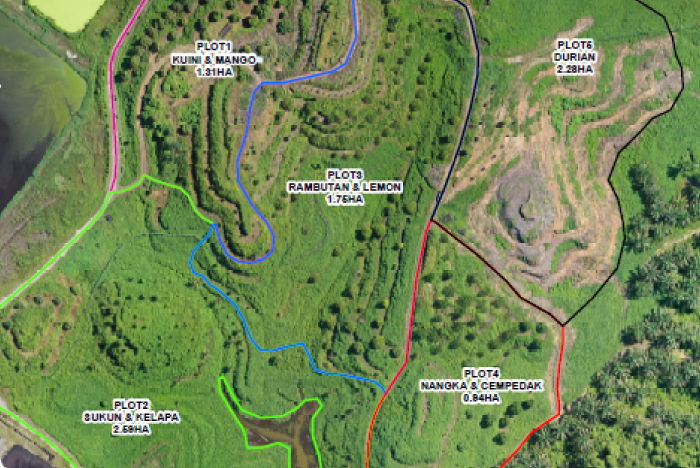
Part of the area within plantation is allocate for fruit tree planting, fish pond, vegetable planting and etc.,
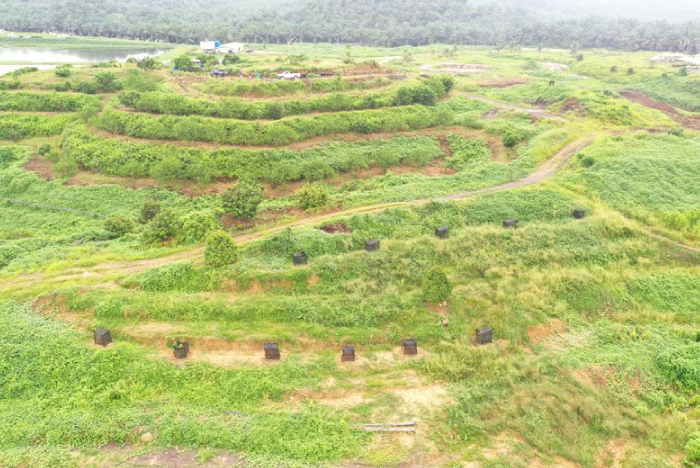
Fruit Planting Area within oil Palm Plantation as part of the food security program
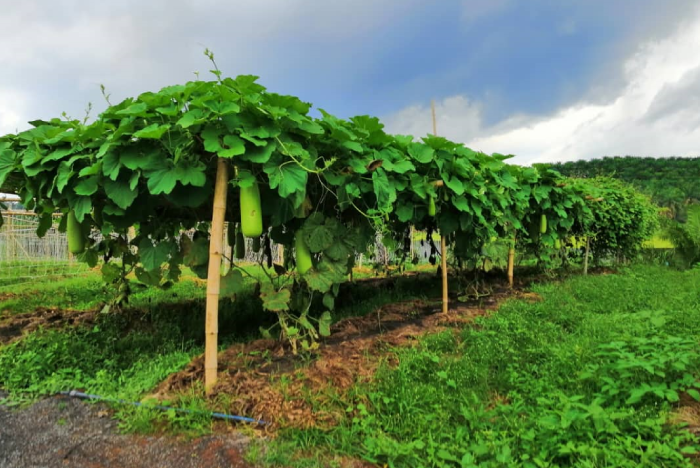
Vegetable Planting Area within oil Palm Plantation as part of the food security program
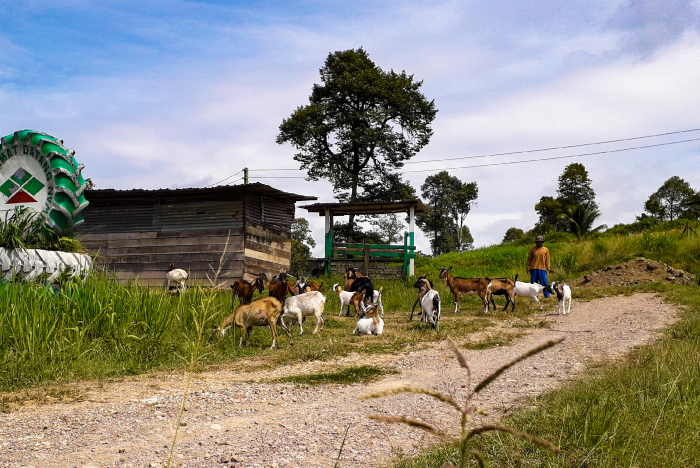
Goat Farming within oil Palm Plantation as part of the food security program
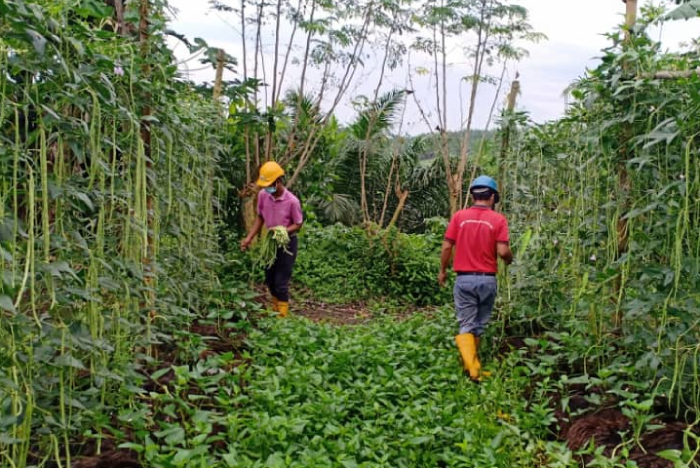
Part of the food security program
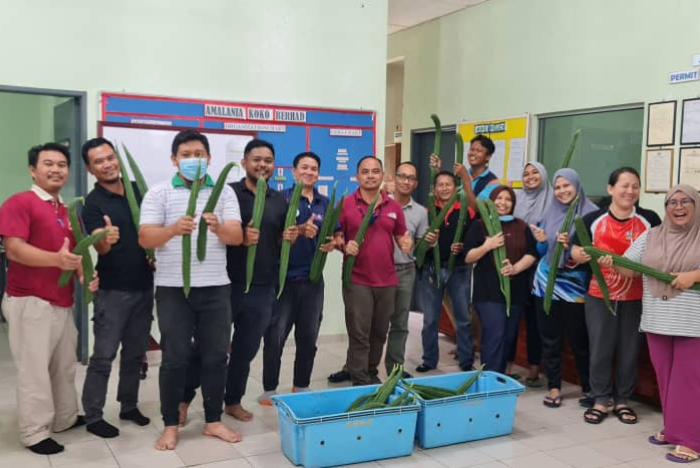
Vegetables distribution to employees
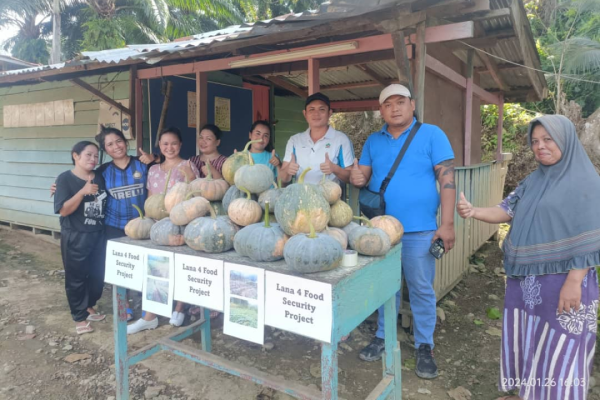
Access pumpkins are given free to the staffs and workers

Trial on hydroponic project
In collaboration with the Department of Agriculture (Bintulu), GPSB has donated and planted 50 Liberica coffee seedlings and 50 local fruit tree seedlings at the designated area on Long Bala community land. This initiative is a follow-up to a similar project carried out in May 2023. The program also included other activities, such as demonstrations and talks on producing organic fertilizer from food waste, jam-making sessions for the women of Long Bala, as well as educational talks on agricultural best practices and broader awareness programs.
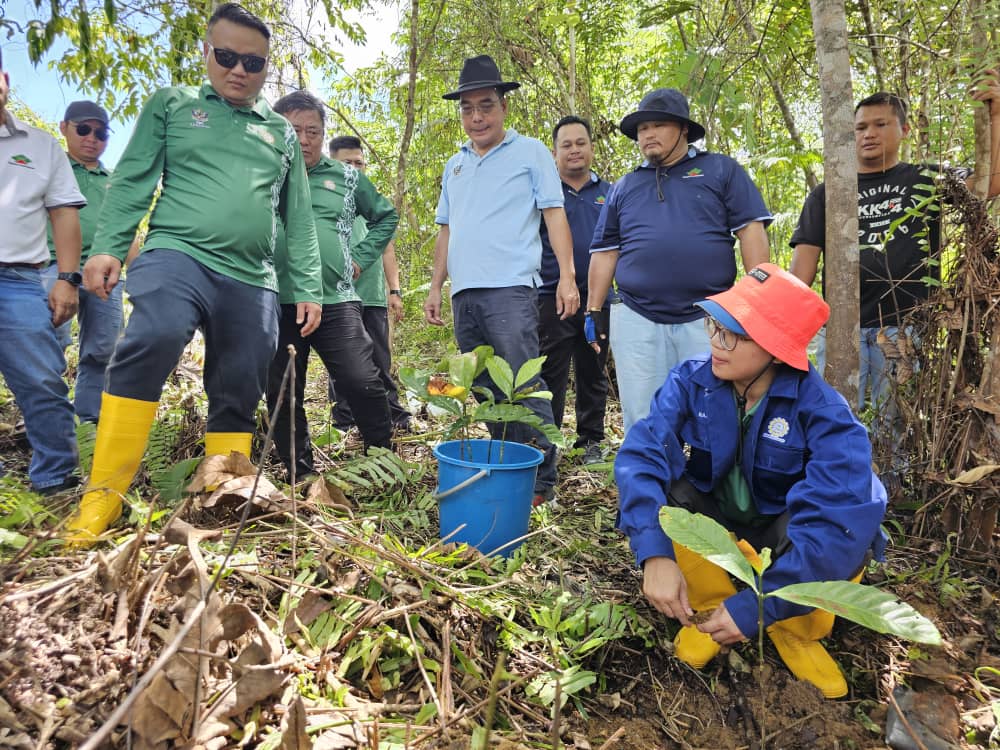
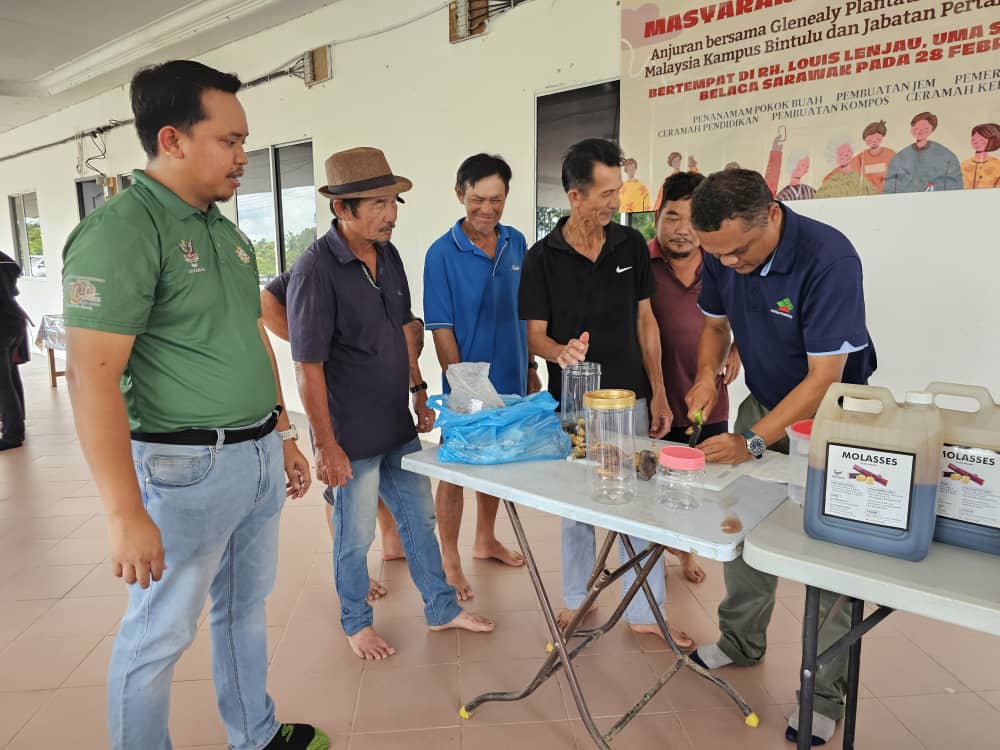
GPSB has generously donated and planted approximately 50 seedlings of various fruit species, such as Musang King (D197), Petai (Parkia speciosa), and Dabai (Canarium odonthophylum), in specific areas of the Long Bala community's land. In addition to this, they have contributed 300 Keli fish seedlings as a vital component of the community's food security program.
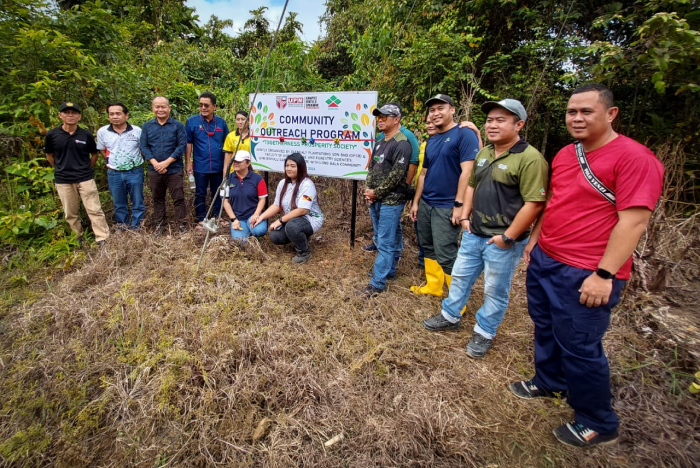
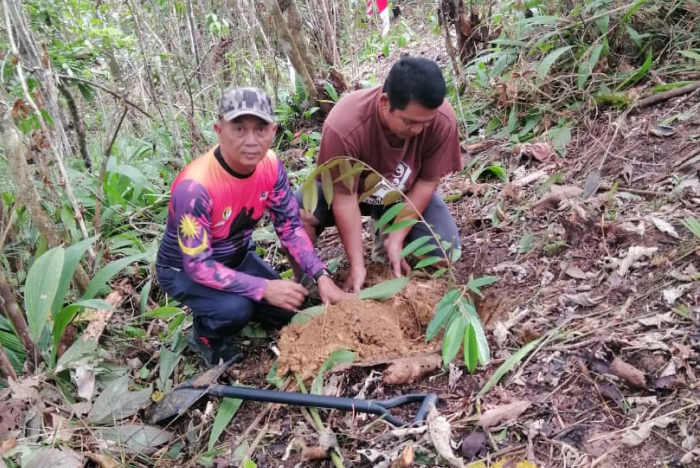
The D200 Black Thorn Planting Programme was initiated by the Sustainability Team partnered by Jelalong 3 and Jelalong 4 estates to promote and encourage local stakeholders within Glenealy Plantations Sdn Bhd (GPSB) estate areas to plant commercially potential durian species, which is marketable and highly demanded in the current market. In addition, this programme also helps to strengthen GPSB relationship with Rh. Derick’s community.
This was the first food security collaboration project between GPSB and local stakeholder - Rh. Derick of Tabau Jelalong.
12 healthy and mature seedlings of D200, including the fertilizers were donated and planted with a distance of 30 feet apart between each other. Each seedling was fertilised and covered with a net to limit the sunlight exposure. The Sustainability Team and staff from Jelalong 3 and 4 will visit the project area once every 3 months to ensure the durian seedlings were in optimal condition.
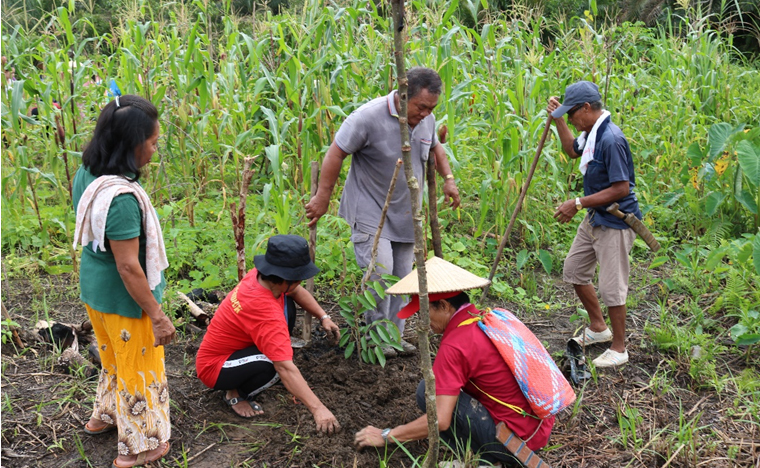
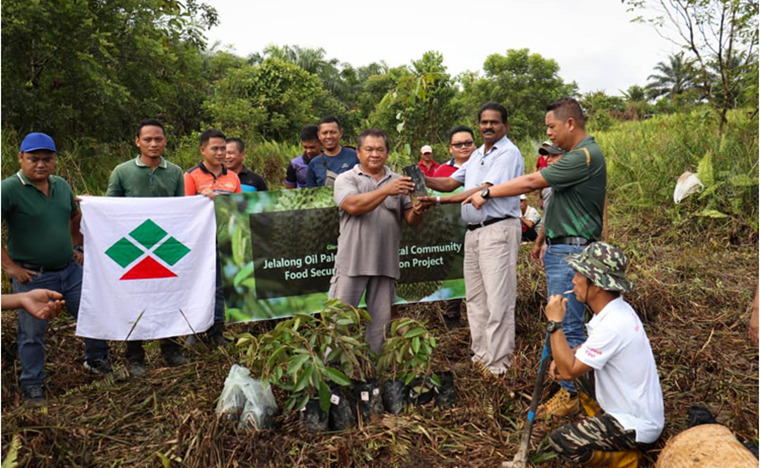

11th Premier of Sarawak Environmental Award (PSEA 2023/24)
GOLD Award for 12 Estates and 1 Palm Oil Mill - Belaga 1 Estate, Belaga 2 Estate, Jelalong 1 Estate, Jelalong 2 Estate, Jelalong 3&4 Estate, Jelalong 5 Estate, Jelalong 6 Estate, Jelalong 7 Estate, Lana 1 Estate, Lana 2 Estate, Lana 3 Estate, Lana 4 Estate and Jelalong Palm Oil Mill.
MERIT Award for 1 Estate and 2 Palm Oil Mills - Belaga 3 Estate, Belaga Palm Oil Mill & Lana Palm Oil Mill.
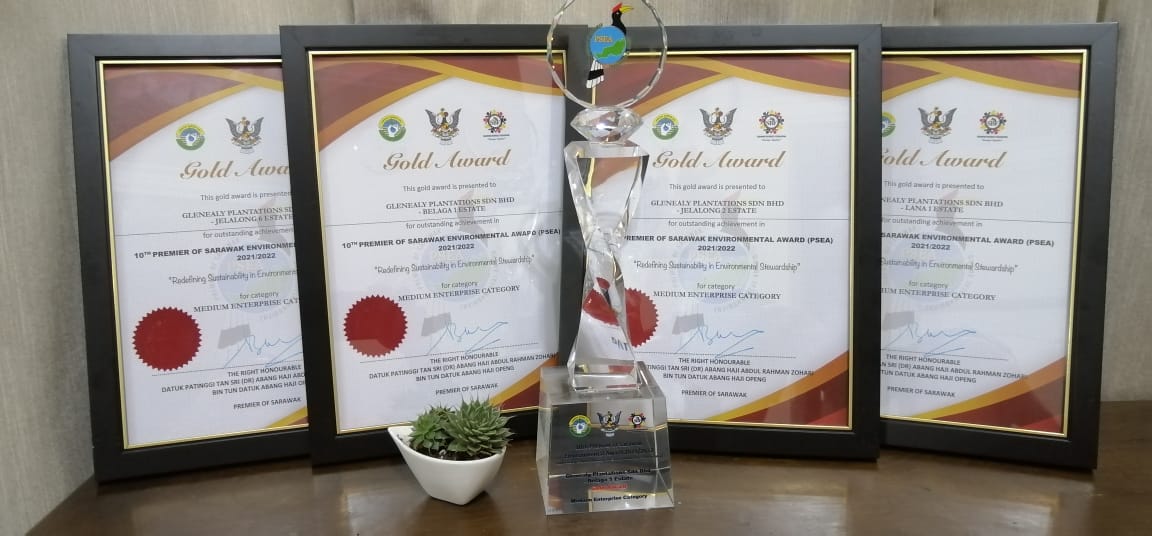
10th Premier of Sarawak Environmental Award (PSEA 2021/22)
GOLD Award for 4 Estates - Belaga 1 Estate, Jelalong 2 Estate, Jelalong 6 Estate and Lana 1 Estate.
Program supporting plasma smallholders at PT Abdi Borneo Plantations and PT Tunas Borneo Plantations
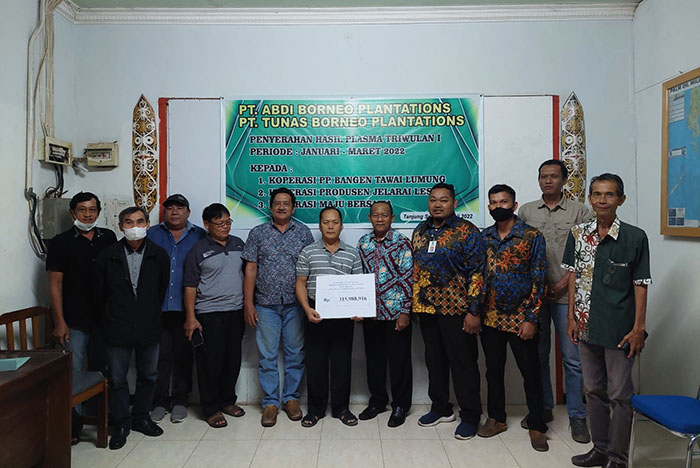
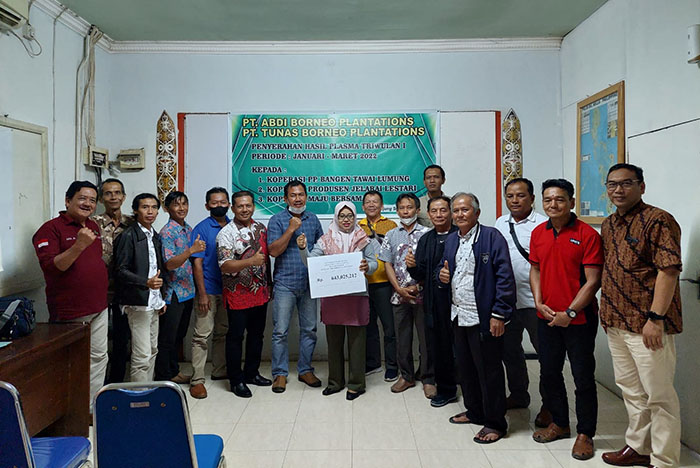
Plasma Scheme Profit Distribution to all (100%) the Plasma scheme holder - Distribution ceremony for year 2022
Glenealy Plantations Sdn Bhd (GPSB) & Smallholder Engagement (Rh. Louis Ngagong Lenjau, Seping Long Bala) - 5 May 2023
On May 5, 2023, GPSB management, acting as responsible oil palm growers, conducted an Oil Palm Management Talk. The talk covered various aspects of best management practices in oil palm agriculture, including managing fertilizer deficiencies, herbicide usage, pest and disease control, and adhering to harvesting standards. The purpose of the talk was to enhance oil palm yield for the Long Bala communities, which primarily consists of oil palm smallholders.
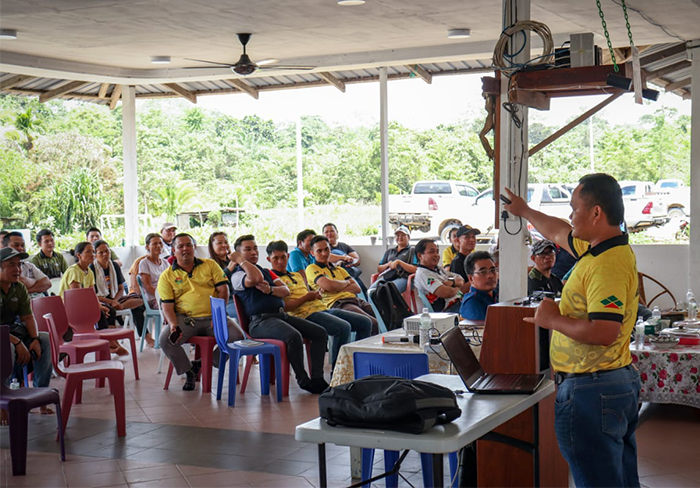
Glenealy Plantations Sdn Bhd (GPSB) & Smallholder Engagement (Rh. Ningkan, Jelalong) - 28 Oct 2023
On October 28, 2023, GPSB collaborated with various government agencies, including the Bintulu Development Authority (BDA), Department of Agriculture (DoA), Department of Environment (DOE), Natural Resources and Environment Board (NREB), Faculty of Agriculture and Forestry Sciences at Universiti Putra Malaysia (UPMKB), and the Sebauh District Office. The collaboration involved a community outreach program at Rh. Ningkan, a local community and oil palm smallholder situated near GPSB’s Jelalong estates.
During the engagement session, GPSB conducted a talk on "Best Oil Palm Agriculture Practices." This encompassed topics such as optimal practices for oil palm weeding, manuring, harvesting, pest and disease control, and other methods to enhance smallholders' oil palm yields. The event was collectively attended by communities from eight surrounding longhouses. You can find more information in the press statement linked here.
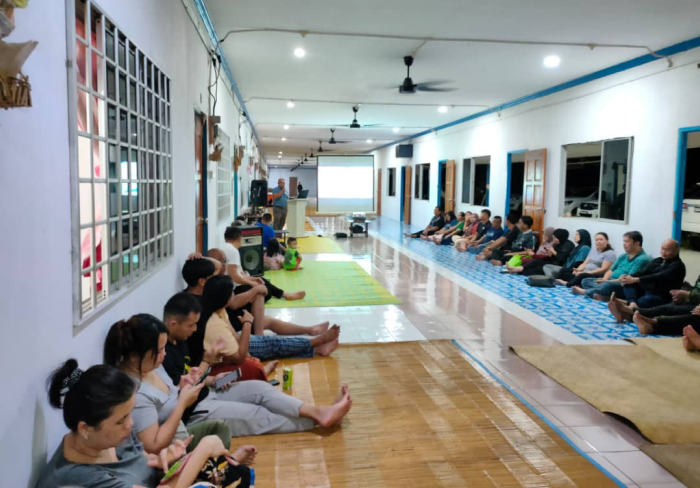
Oil Palm smallholders from longhouses attend the Best Oil Palm Agriculture Practices training
Glenealy Plantations Sdn Bhd (GPSB) & Smallhoder Engagement (Rh Jeranding, Rh Aban and Rh Awan) - 26 Jun 2024
On June 26, 2024, GPSB - Jelalong West Complex has initiated an oil palm smallholder engagement with the tagline, "Pengelikun Nyaga Kebun Enggau Manah Ulih Mansut Ka Penatai Pemisi Ke Lebih," aiming to share best agricultural practices to enhance productivity, sustainability, and profitability among local smallholders. By disseminating knowledge on efficient farming techniques, pest management, and sustainable practices, the initiative seeks to empower smallholders, improve crop yields, reduce environmental impact, and promote overall economic growth within the community. The participants included small growers from Tuai Rumah Jeranding, Tuai Rumah Aban, and Tuai Rumah Awan, which all from the nearby local community.
The event took place at Tuai Rumah Jeranding’s Palm Oil farm, where several informative sessions were conducted. The main sharing was as follows:
